by Francisco Rodés
On April 4, 1968, I was spending several weeks working as a volunteer during the sugar cane harvest when I first heard the shocking news of the death of Martin Luther King, Jr. (Later I will explain why a young Baptist pastor found himself in that situation, in a voluntary work camp in which 95% of the workers were either members of the Communist Party or were members of the Communist Youth.) As we sat eating our lunch, sitting on bundles of harvested cane and listening to a loud speaker providing music and occasional news, we heard the announcement that King had been assassinated.
I lowered my head in consternation when I heard several comments being made around me, “Look at that. They have killed him even though he is one of them.” In Cuban terms, the speaker was pointing out that King was just another American, someone who formed part of the Empire. I took the opportunity to explain to those around me that King was a martyr, a fighter for racial justice and for the rights of the most humble of people. I said that he certainly was an American, but that he was not an imperialist. He belonged to the poor and to those committed to nonviolence. Moreover not all Americans are imperialists, I said.
Quickly a circle of workers gathered around me, interested to learn of a type of Christianity which was new to them: Christianity committed to a better world.
Clearly, this essay has the appearance of being more autobiographical and testimonial than academic. The passion and purity which characterize a renewed faith can only be expressed this way.
It was only following his tragic death that the interest in King’s life grew dramatically in Cuba. During those years, Cuban attention to international affairs was intense but was directed to our south. A year earlier, guerilla leader Ernesto Che Guevara had died in combat in Bolivia. The Cuban Revolution was exerting a strong influence on youth movements, leftist groups, and even Latin American Christians had begun a theological reflection which would give birth to liberation theology. It was a time of exaggerated political optimism, when a great many believed that building a society free of the ravages of capitalism was not only possible, but was near at hand, maybe just around the corner.
At the time, the Cuban Revolution was struggling to survive. The United States erected an economic blockade. Mercenary groups infiltrated our borders and then unleashed their terror with the U.S.-coordinated Bay of Pigs invasion. And yet we survived. Meanwhile, churches in Cuba found themselves challenged to minister in the new Cuba, full of patriotic fervor and a new social vision, appealing to idealistic youth with dreams of a Cuba free of poverty, illiteracy, and all of the wrongs which had been a part of our society.
Inevitably, Cuban churches faced a crisis. The Cold War had deeply influenced many people, generating a fervent anti-Communism in the majority of religious leaders. The conflict between the government and the Catholic Church was especially fierce. The Church lost its educational institutions and the majority of the Spanish clergy were expelled. Confrontations with some religious groups, like the Jehovah’s Witnesses, created an atmosphere of general condemnation of religion, which was accused of being an ally of reactionary forces.
Of the various political currents that inspired our revolutionary leaders, a certain dogmatic, Soviet-style Marxism became the political norm, prompted in large measure by the need for alliances to withstand pressure from the U.S. Popular education materials imported from the Soviet Union identified the confrontation between scientific materialism and idealism (which included religion per se) as the root of ideological contradictions. The patriotic song used at that time was the Internationale, which states in one of its verses “no more supreme saviors, no Caesar, no bourgeois, no God; we will make our own salvation.” This form of Marxist fundamentalism was proclaimed with missionary zeal in special schools of “revolutionary instruction” and was taught as a part of the regular program of study from junior high school through graduate school.
Some popular forms of religion, which fused a mixture of African cults and Catholic saints, were open to these revolutionary ideas, since most practitioners were among the poorest of Cuban society. On the other hand, evangelical (Protestant) churches had a conservative tradition with a vision of the mission of the church focused on personal conversion and an eschatology of “the Great Tribulation” which, in many cases, identified Moscow as the beast of Revelation 13. These churches did not have the capacity to give an adequate answer to the new challenges. Many young people abandoned the churches because they were more attracted by the construction of a new society than by sitting in a church pew.
Thus it is not surprising that the church windows were closed to the outside world, which was seen as being dominated by hostile and dangerous forces. A large number of pastors abandoned the country, concluding that the hour of the church had passed and that God was no longer among our people.
However, at the same moment in Cuban history, a few pastors and laypersons were touched by the free wind of the Holy Spirit and developed a theological vision that drew us into the world rather fleeing it. We wanted to demonstrate that the Church was not necessarily reactionary, that Jesus was also a revolutionary in his day.
Timidly, and with fear and trembling, we met to reread the Bible, seeking a word from God for the new situation. Fortunately we found support, first in the global church. Because of our ecumenical connections, we had contact with Christians of great vision. They spoke to us of another way to be faithful disciples of Jesus as persons committed to transformation of history and not just its repudiation. They helped us to understand the parallels between the Marxist critique of religion and the protests of the prophets of Israel, who charged that religion had become a cult divorced from justice, with the Law and the Temple evolved into idols. This disturbing theme helped us to become aware of the idolatry in the church itself.
Later, we pondered Martin Luther King, Jr’s. “Letter From a Birmingham Jail,” where he confessed his disillusionment upon contemplating the beautiful architecture of the churches in the South, asking, “What kind of God is worshipped by these people?” With a leadership more interested in maintaining order than in the practice of justice, a God who is distant from the sufferings of the people cannot be anything other than an idol, good for quieting the conscience but not for liberating the oppressed. Martin Luther King, Jr. helped us to take a critical look at our own ecclesiastical institutions.
We also were inspired by pivotal figures such as Dietrich Bonhoeffer, whose uncompromising stand against Nazi power resulted in his execution. Bonhoeffer inspired us to come to understand a God who works “on Mondays,” in the midst of a secular and, in some senses, a post-Christian society.
At that time we also learned about Camilo Torres, a priest who was very influential among university youth, who was killed while fighting as a guerrilla in Colombia. Torres said that we can only call ourselves followers of Jesus when we practice effective love for the poor. With him, many other Christian youth took up the fight as guerrillas, creating a revolutionary mystique. The idea of nonviolent struggle was not very popular at the time.
All of these winds stirred the flame of a call to live faithfully within the large public policy issues of the day.
However evangelicals, nurtured in a tradition of commitment to the church and devotion to the Bible, felt emptiness and were not completely at ease. We needed to discover resources in our own tradition. It is here where Martin Luther King, Jr. became a guiding light. King was a man of the church, a Baptist preacher with Bible in hand, defending the cause of the oppressed. Quickly, he became the hero of the new generations of Christians in Cuba. We were still unfamiliar with the breadth of his thought, but the little we did know inspired us to live a faith committed to the disinherited. King’s witness—and through him an introduction to Gandhi—gave us a concrete example of active, nonviolent resistance in the face of injustice. Most importantly, King’s life provided a new way to read the story of Jesus.
We were beginning to chart a course between the polar options of a sectarian form of Marxism, on the one hand, and a rabidly reactive anti-Communism on the other. We knew instinctively that our social vision needed to cohere with sound biblical insights. We felt the need to have the light of God’s Word illuminate our way on this tumultuous journey.
In 1971, I was invited to speak at a meeting of Baptist youth in Havana, whose theme was “The Validity of the Message of Christ for Our Action.” This gathering of more than 200 youth and young adults was exploring questions of Christian testimony in Cuban society. I prepared myself to present the biblical foundations for a responsible Christian presence in the world. I chose three key themes to shed light on this topic: the incarnation, as God’s method for influencing the world; the Kingdom of God, as the stimulus for announcing a better world; and the struggle against the principalities and powers as the prophetic task in the face of evil. It was upon these three pillars that I sought to base the Christian commitment amidst the historic circumstances in which we were living. The influence of the thinking of Martin Luther King, Jr. was the main source for this reflection.
The Incarnation
Understanding the basic meaning of incarnation requires a major shift in our way of understanding the form in which God’s mission in the world is realized. In Jesus’ statement, “as the Father has sent me, I am sending you,”[1] the word “as” indicates a specific model for accomplishing the mission of evangelization. This is none other than the incarnation, the presence in soul and body in the world, just as Jesus exemplified. We evangelical Christians have understood evangelization primarily as a kind of religious marketing, as if the gospel were just another product to offer, a piece of merchandise for sale. This is not to depreciate verbal proclamation, but only to affirm the content expressed in our actual lives.
To make this point, I said there are times when we need to vacate our pulpits, illustrating with a story of when King was invited to give a sermon in an ecumenical meeting in Geneva. Due to exceptional demands of his work, he made the difficult to decision to cancel his travel plans. Instead, he sent a recording of the speech, which was reverently received though the pulpit was empty. Since King was present in all of the important moments of the struggle, it was not possible for him to remain comfortably within the walls of the church.
Unfortunately, when all is said and done, there’s usually a lot more said than done. Which is what Jesus must have had in mind when he answered the disciples of John the Baptizer who were inquiring as to whether he was the awaited Messiah. Jesus did not respond with a great sermon or a philosophical argument. He simply answered, “Go back and report to John what you hear and see. The blind receive sight, the lame walk, the dead are raised, and good news is preached to the poor.” [2]
To speak of incarnation in the Cuba of the 1960s and ‘70s meant the church needed to actively engage the pain of the world. Even if those committed to Communism did not clearly understand the motivation behind our actions, it was time to demonstrate the true nature of the Church through deeds and not just with words.
One way we vividly demonstrated this conviction in our context was to volunteer in our nation’s vital sugar cane harvest. Since the earliest days of colonial rule—first under the Spanish, then under the U.S., and, in some respects, under the Soviets—Cuba’s fertile soil has been enslaved for the production of sugar. Though dramatically changed in the last generation, our economy was one big sugar factory. At the time, this was the principle resource we could offer in international trade. Given this reality, some of us in the church chose to show our solidarity by joining the throngs of people who left the cities to harvest cane.
It was arduous work. We lived in rustic shelters, rising with the dawn and working until dark. It was during one of these excursions that I heard the news of King’s murder, and it prompted in me a strange mixture of both sadness and pride. Our presence as Christians in that setting caused suspicion among co-workers. They asked me if I had a “Nixon grant,” the term used of those the government had sent to work in the country because they had put their names on a list of those who wished to leave Cuba.
Many churches, too, had a difficult time understanding this expression of Christian witness. I had to go before a congregational meeting to explain my reason for participating in the harvest. Happily, in the end they came to understand and support my action.
The path of incarnation is marked by the love of God (“For God so loved the world ….” John 3:16), and also by the spirit of humility, which is the "same attitude as that of Christ Jesus: Who being in the very nature of God … made himself nothing, taking the very nature of a servant, being made in human likeness. And being found in appearance as a man, he humbled himself and became obedient to death — even death on a cross!" [3]
This path was not popular with those who thought that opening church doors and inviting people to come in was all that was necessary to fulfill the task that God has put in our hands. Dr. King’s witness helped us understand that we are saved for the world, not from it.
Even more, some of us felt that spending a few days doing agricultural work was not enough. We believed it was too easy to stand in the pulpit and preach about sacrifice without having any other working obligations. This concern over the difference between pastors and laypersons led me to ask my congregation’s permission to become a bi-vocational pastor. The church approved my unusual request.
Soon I found work in a farm produce distribution business, a job I held for 15 years. This kept me closely involved with working class people of humble means. I shared with them work which was exhausting, but gratifying, since it dealt with distributing food. This bi-vocational experience of living in two different settings was not easy and sometimes things became confused in my mind. There were days in which at the beginning of a church service I found myself almost saying “Dear fellow workers, let us pray to God,” or in a labor union meeting saying “Brothers and Sisters in Christ.”
Most Cuban pastors did not make this choice. In fact, there were more bi-vocational pastors prior to the revolution than after. There were times when I endured accusations from peers of being a collaborator.
It is difficult to know the exact results of my bi-vocational choice. Only four of my work companions were baptized in the church. However, many co-workers began to see the church with new eyes. I never was an anonymous worker, and always something of a curiosity.
The importance of my dual career was less about my impact on the workplace as it was the workplace’s impact on me. It kept me in touch with the reality of everyday life. It made me a better pastor. It resulted in important friendships I would otherwise have never had.
The Kingdom of God and Utopia
A second theme I presented to the Baptist youth gathering in 1971 was the importance of rediscovering that the central message of Jesus was not the salvation of the soul, but the announcement of the Kingdom of God. The notion of “Kingdom” points to a messianic hope, a new order which has burst upon the world and which Jesus made visible through miracles of healing and all of his redeeming work among those marginalized by economic and political institutions: the hungry, the orphan, abused women, among others. The coming of the Kingdom means the unfolding of what Dr. King called “a revolution in values,” resulting in a new social order based on the law of love. With great enthusiasm, we learned of New York City pastor Walter Rauschenbusch, one of the founders of the social gospel movement, which placed the theme of the Kingdom of God at the center of the Christian mission.
We linked this new perspective to the language of utopia, which “does not yet exist,” but provides a horizon and calls us to the struggle for the age where the prophets´ dreams of justice and universal peace [4] are fulfilled. For us, utopia and the Kingdom of God began to resonate, both expressing the hope of a better world, both provoking transforming actions.
We concluded that it was hypocritical to pray Thy Kingdom come while not being committed to the signs of the Kingdom—life, justice, and peace. We were aware that neither socialism nor any other social system could be equated with the Kingdom. However, we did see in laws which favor the poorest among us a sign, an indication that events were moving in the direction of the Kingdom. The dream of a new world and the signs that this was coming in our midst motivated us to live with joy and hope, working so that the Kingdom would also be visible among us.
There is no doubt but what Martin Luther King, Jr. was this type of dreamer. He believed that another world of brotherhood, which he named the Beloved Community, could be a reality in our world. Although he himself might not live to see it, he could view it from afar, like Moses viewing the Promised Land without being able to walk its ground.
Indeed, on the very eve of his assassination in 1968, speaking to a crowded church in Memphis, Tenn., King, with great emotion, said: "Like anybody, I would like to live a long life. Longevity has its place. But I'm not concerned about that now. I just want to do God's will. And He's allowed me to go up to the mountain. And I've looked over. And I've seen the Promised Land. I may not get there with you. But I want you to know tonight, that we, as a people, will get to the Promised Land!" [5]
This “promised land” was the “dream” about which he spoke so eloquently and forcefully in his well-known speech given during the 1963 March on Washington. This kind of dreaming is what we mean by utopia. He said, “I have a dream that one day ….” This serves as an irrefutable proof of his perspective. It entails a deep dissatisfaction with the present and the confidence of a better world. This is what sustains us in Cuba.
From “Credo” by King, we take a few lines which reveal this passionate utopian spirit.
"Today as the world lies in darkness and in the hope of the Good News, I boldly affirm my faith in the
future of humanity.
"I reject the belief that in the current situation human beings are not able to make a better world.
"I firmly believe that, even in the midst of exploding bombs and thundering cannon, there remains the hope of a shining tomorrow.
"I dare to believe that one day all inhabitants of the world will be able to have three meals a day for the life of their bodies, education and culture for the health of their spirit, equality and freedom for the life of their hearts.
"I also believe that one day all of humanity will acknowledge God as the source of their love. I believe that saving and peaceful goodness will one day become law. The wolf and the lamb will be able to lie down together, each person will be able to sit under his fig tree, in his vineyard, and no one will have reason to be fearful.
"I firmly believe that we will triumph."
In Cuba saw signs of that Kingdom of God in everyday events. The decades of the ‘60s and ‘70s were time of important changes in Latin America. The Catholic Church was renewed by the new winds of Vatican Council II and awoke to the problems of today’s world. In 1968, Latin American bishops meeting in Medellín, Colombia, proclaimed the necessity of the socio-economic liberation of the continent. Thousands of organized local groups in Brazil and other countries searched the Scriptures for messages to address the oppression their people were experiencing. They found themselves rereading old texts with new eyes. Protestant and Catholic theologians created a new language, apart from academic abstractions and digressions. The phrase “a faith in search of effectiveness” began to be used (Miguez Bonino). Poor people became favored participants in theological dialogue, as they searched for sense in a world without sense. European theological dialogue about secularism had little to contribute. On the political front, socialist candidate Salvador Allende won democratic elections in Chile with a program of sweeping changes.
We young Cuban pastors worked intensely to raise awareness in our churches because we believed that the Christian Church has a place and a message to offer in times of change. We translated progressive position papers, distributed texts by Martin Luther King, Jr., and organized retreats focusing on Christian social responsibility. All this was designed to forge a new generation of Christians with social awareness. We were able to bring together a considerable number of workers, students, and young people in general.
But our optimism was premature, and we underestimated the power of the establishment. Firmly based social structures showed their ugly faces. The Reagan era began, and a meeting called by his advisors in Santa Fe produced a document that warned of the danger posed by liberation theology to the interests of the United States. Repressive regimes focused on “national security” began to appear. Military dictatorships savagely suppressed their people. Thirty thousand died or “disappeared” in Argentina alone. The sunset of hope had begun. The Kingdom of God was not as close as we had thought. Other contradictions awaited us in the near future and pushed back even further the horizon of the utopia of which we dreamed. We still had much to learn.
Here at home the churches were moving at an agonizing slow pace toward social awareness. Rumors circulated that our group of young pastors was made up of Communist fellow travelers and that we were ecumenical heretics who opposed everyone who did not have a social commitment. We were excluded from programs at conventions and internecine fighting within Cuban Baptist organizations became more and more bitter. There was no dialogue, only the exclusion of anyone who thought differently.
At this point it was becoming clear that the concept of the Kingdom of God carried with it some elements that distinguished it from human utopias. One distinguishing element is highlighted by the cross and the resurrection. These mark a path of suffering, self-denial, and momentary defeat, but which in truth is no more than the darkness that precedes the splendor of the resurrection dawn. The Kingdom of God does not guarantee a steady, upward movement. There are failures and steps backward, and there is a cross of infinite pain that must be taken up. As Martin Luther King taught with his very life, opposing violence is a risky venture. King’s followers walked this path with great difficulty, practicing a reflection and spiritual meditation that gave them the capacity to suffer violence without inflicting it. For Christians, the resurrection is the assurance that the Kingdom is not totally annihilated. Life surges up with more power than death. As a Latin American poet has written, “All the flowers can be cut off, but no one can stop the coming spring.”
A second distinguishing element in the Good News of the Kingdom of God is that Christian hope provides a unique perspective in a time of apparent stagnation. This hope does not offer a refuge for those who have failed. Rather it is an ointment that opens the eyes to other realities, to small things which seem insignificant, but which contain the promise of life. Jesus spoke of a mustard seed, of the hidden treasure, of the children, of the leaven hidden in the bread dough. The Kingdom breaks out among us in small, simple things. It is not necessary that there be a seizure of political power; there is another power that rises up from below, from the simplest links of society, in the family and in the community. That is where ethical values are created, the values that fertilize the soil for the building of a better world.
These are lessons that were missed by the revolutionaries who saw their dreams of a more just society become frustrated.
The principalities and powers
These struggles made us ask ourselves: against whom are we fighting? What is preventing the world from being transformed and our own churches from being renewed? Why are social structures so resistant to a change that would benefit the majority? It seemed as if we were swimming against a current that was much stronger than we were and which was pulling us further and further from the Kingdom.
Orthodox Marxism attempts to give an answer, teaching that society is conditioned by its economic struggles. Marxism argues that political power is built on these economic structures, which give rise to ideologies and produces a culture. So when the control of the economy changes hands, the superstructure changes, almost automatically. A socialist society which takes ownership of the means of production creates the conditions for satisfying the material needs of its members. This results in a new culture and a new ideology.
However things are not quite so simple. Human beings are more than the sum of their material needs. In addition, the so-called superstructure enjoys a certain amount of independence. Classical Marxism did not take into account what Italian thinker Gramsci later called the existence of a hegemonic power that enjoys relative independence from political and economic power. This power expresses itself through the institutions of the civil society, such as the customs and traditions of the people. This perspective takes into account the influence of traditional culture, religion, and customs. This hegemonic power serves as a counterweight to political power and in the long run can totally debilitate it. This thinking allows us to understand that part of the success of the civil rights movement led by King is due, not only to the justice of its demands, but also to the fact that it was rooted in the traditions of the Black church.
Another factor contradicting classical Marxist theory is the undeniable fact that human desires sometimes count for more than needs. Thus, it is not surprising to see those living in a barely habitable dwelling in a very poor country using the latest model of television and a cellular phone. For them there seems to be no relationship between wants and needs. It would be interesting to research the degree of influence the power of consumerism had in the crumbling of the socialist camp.
All of this brings us to the Biblical categories of “principalities and powers,” which help us to understand the powers that dominate society and even our own churches. These powers can be of great blessing, as was the case in the traditions of Black churches. On the other hand, they may include negative influences, for example political and religious fanaticism and xenophobia. All of these realities can be addressed using the Biblical categories of principalities and powers.
Those of us in Cuba were faced with the challenge of how to find a Biblical basis for the existence of the oppressive realities which go beyond exclusively individual limitations and which are difficult to pinpoint. We saw how Martin Luther King, Jr., understood and faced the racism which was part of the laws and traditions in the South and which was reflected in the thinking of many sincere Christians and even in the passivity present in some of his own people.
Fortunately, the book These Rebellious Powers, written by Albert van den Heuvel, provided us with an answer. In this book we discovered that the words “principalities and powers,” which are mentioned so much in the New Testament, form a conceptual foundation on which we can base our understanding of mental structures, traditions, prejudices and unjust laws. In other words, principalities and powers can be used to refer to everything which conditions the lives of people and which acts as a net in which people become trapped. Thus, the terms “principalities and powers” came to play a key role in our thinking.
Huevel writes, "When powers isolate, bind, sow enmity, create loneliness, demand idolatry, and produce selfishness, conservatism and traditionalism, it is time to remember the invitation of the Messiah to join with Him in throwing these powers from their thrones."
Huevel argues that in his letter to the Colossians, Paul connects this idea of powers to the Jewish religious traditions that restrict freedom. Thus it is appropriate to apply the categories of principalities and powers to all structures, ideologies, traditions, and any other parts of society that become oppressive. Later, theologian Walter Wink explored this theme in depth in his well-known “The Powers Trilogy."
Certainly the vision of Ephesians 6:12 nurtured King’s spirit as he clarified the structural dimensions of the sins of racism and segregation: “For we wrestle not against flesh and blood, but against principalities, against powers, against the rulers of the darkness of this world ….”
While I am not certain if Martin Luther King, Jr., used these same biblical arguments in referring to his struggle, I am convinced that he handled the racial conflict from this perspective and with the belief that one must oppose injustice without dehumanizing the perpetrators. From this perspective, a racist is the victim of powers that have blinded him and therefore the racist deserves the compassion that is capable of helping him to redeem himself from his sin. In the methodology of Gandhi, Martin Luther King, Jr., also found the way to educate the masses in the awareness that it is love, rather than hate, which motivates all of their sacrifices.
We in Latin America are familiar with ethnic and racial prejudices, which attribute the crushing poverty of indigenous peoples and blacks to supposed flaws in their character and lack of discipline. We are convinced, however, that this poverty was brought about by the oppression of the powerful, which has created institutional mechanisms that perpetuate injustice. Poverty is not a divine punishment, nor is it due to a lack of will on the part of the poor. Instead, it is due to those structures that are the modern “principalities and powers.” The most painful aspect of this is that a feeling of inferiority has been internalized into the consciousness of the poor. As a result, the poor are not able to free themselves from the fatalism and dependency on their supposed protectors who, while not giving them a decent life, at least guarantee them a certain amount of security.
Two Tools
In the face of these realities, two tools have come to the aid of the oppressed people of Latin America. We mention them because in some way they will have an impact on the Cuban situation. One is popular education, created by Brazilian Paulo Freire. This consists of nothing more than empowering the poor to enable them to uncover the true reasons for their poverty. The poor then become the main players, active subjects who have something to say and who have developed a critical awareness of reality. Popular education creates spaces for horizontal dialogue, participative and inclusive. It raises self-esteem and produces a commitment to make necessary changes. It is a very valuable tool against fatalism, authoritarianism, and against the “principalities and powers.”
The second tool is so-called liberation theology that introduces a new method for developing theology. It does not begin with what was said in the past by theologians and learned scholars. Rather, it consists of a dialogue with the subjects of history—people. Throughout time, theology has developed through a conversation among those in the community of faith and the surrounding culture, and the dominant thought and philosophy. This has been an exchange of ideas, involving both give and take. Theological development has been marked by evolving concepts with a philosophical emphasis and has become primarily an academic exercise involving a small number of specialists. In the process, it has lost its evangelical and prophetic edge.
Latin American theology does not ignore the heritage achieved through years of reflection and theoretical development, but it has forged a new focus, based on real life and the oppressive circumstances being lived by a majority of poor people. Indeed, the central affirmation of this theology is the assertion that the God of Scripture is One who listens and responds to the cries of slaves. In Latin American theology, faith concepts are not questioned by illustrious thinkers, but by the poor, who pose the great questions of justice and the love of God. Latin American theology begins with the practice of liberation. Therefore by its very nature it critiques all theological reflection that contributes to the perpetuation of a situation of suffering and oppression.
The first liberation theologians on our continent were the Dominican friars, headed by Pedro de Cordoba and Antonio de Montesinos, who used the pulpit of the Mayor Parish on the island of Hispaniola to denounce the crimes and abuses that the Spanish conquistadores were committing in indigenous communities. From that point, there began a current of prophetic voices, headed by Fray Bartolomé de las Cases, which gave life to a form of speaking of God which was different from the traditional because it represented the voice of the oppressed.
So in this sense other liberation theologies have arisen in the world. In one way or another, they all position themselves alongside those who have suffered discrimination or who have been marginalized. All have an element of the prophetic denunciation of all ideologies that justify and contribute to the persistence of oppression. Thus, it is possible to speak of a feminist theology, which unmasks the machismo hidden in language, customs, and religion. Nor can we fail to mention Black theology, which has made a major contribution to the unraveling of the enormous load of racism in Western culture and has put forth a theology which dignifies and values the contributions of Black culture and traditions.
Though well-educated, holding a doctorate in theology, Martin Luther King, Jr., was not an academic theologian. His life was not connected to a university classroom. However, to read his writings is to plunge into the depths of liberating thought. King’s way of thinking moves awareness in the direction of transforming human beings focused on themselves into instruments of peace and into the builders of a new world. So from here in Cuba we see King as being in the best tradition of authentic liberation theology. And, like Antonio de Valdivieso, Monseñor Romero, and many other Latin Americans whose commitment was to read history “from below,” King sealed his commitment to the poor with his own blood.
Transformations in Cuba Today
Now we will address the most current aspects of the influence of Martin Luther King in Cuba today.
In order to speak of Cuba today, it is necessary to acknowledge that the events that occurred in Eastern Europe in 1989 still have a profound impact on our society today. Despite the fact that our country had the capacity to sustain itself and survive against all the dire predictions of the experts, the magnitude of that economic disaster was so great that it is comparable to an earthquake that destroyed 80% of the productive capacity of the country. As an example, prior to 1989 sugar was produced by a well-developed agricultural system with advanced equipment used on state farms and cooperatives and was sold at guaranteed, protected prices. After 1989, production fell from 7.5 million tons to only 1.5 million tons.
The country was left bankrupt, with the United States embargo tightening to the point where the American administration even went after Cuban reserves in US dollars held by foreign banks. In fact, Swiss banks were fined for holding Cuban funds in US dollars.
It isn’t necessary to invest time here in detailing information that can be easily obtained elsewhere. We only want to affirm that for Cubans the horizon which had been utopian was reduced to the space of the struggle for personal and family survival. Up to that time, Cuban socialism had guaranteed a modest standard of living. In 1989, rationing of basic items allowed some easing of the crisis, but in the 1990s the problem of food, transportation and medicine became the top daily priority. The situation was captured in the popular saying ¡No es facil! (“It isn’t easy”). This phrase was repeated thousands of times and became the trademark of the new situation. However the words of Saint Paul also became true in that difficult time: "But we have this treasure in jars of clay to show that this all-surpassing power is from God and not from us. We are hard pressed on every side, but not crushed; perplexed, but not in despair; persecuted, but not abandoned; struck down, but not destroyed." [6]
A new spirituality of resistance challenged pastors and theologians to persevere in standing at the side of the suffering, desperate Cuban people. We were challenged to resist against all hope, without knowing where we were headed; to resist the frustration of those who saw no way out, except to leave the island; and to resist those who feared an outbreak of social chaos and saw no way out except the strengthening of repressive measures.
Pastors for Peace
There was very little international support for us. However Lucius Walker, [7] a prophet and follower of Martin Luther King, Jr., stepped up from the very country which was blockading Cuba. Walker, director of the Interreligious Foundation for Community Organization (IFCO) in New York, organized the first Pastors for Peace Caravan at the beginning of the decade of the ’90s. His goal was to challenge the US blockade by taking to Cuba humanitarian supplies donated by the North American people. Donations were gathered in 120 cities, first in the United States and later in Canada. This help was directed to Cuban schools, hospitals and churches. The Pastors for Peace defied U.S. law, crossing the U.S.-Mexican border with buses loaded with supplies destined for Cuba. On one occasion, a bus carrying donations for the Martin Luther King, Jr., Center in Havana was detained. Members of the caravan went on a hunger strike for many days during extremely high summer temperatures. They were supported by Havana pastors, who began another hunger strike in front of the U.S. Interests Section on the island. Finally, the bus was released and Havana residents joyfully welcomed the caravan members.
The Pastors for Peace were doubtless inspired in their peaceful disobedience of unjust laws by the example of Martin Luther King, Jr. These caravans have been repeated every year. By 2010, a total of 21 caravans have reached Cuba. They have made a difference in the image our people have of what it means to be a pastor. I have experienced this change in the way I am treated in Cuban institutions. All I need to say is that I am a pastor and I am received and listened to with a great deal of respect.
The men and women of the Pastors for Peace Caravans risked jail and of thousands of dollars in fines for violating the embargo laws. It distresses us that the great press establishment of the United States has not given coverage to these heroes, who have offered such a powerful testimony of loving solidarity and of bravery in confronting unjust laws. Martin Luther King, Jr., would feel proud in the company of the men and women who continue walking the path that he began.
The Martin Luther King, Jr. Memorial Center
The counterpart in Cuba to the Pastors for Peace has been the Martin Luther King, Jr. Memorial Center, which was founded by the Ebenezer Baptist Church, located in the Marianao Municipality of the City of Havana.
Since its beginning as a modest institution in the shadow of the church, it has grown and expanded its radius of influence. Because it rose up to meet the difficult times through which the country was passing, it presently enjoys national prestige and recognition, with its influence extending beyond normal church boundaries.
But we will let the Center speak for itself:
"The Martin Luther King Memorial Center is a macro-ecumenical organization of Christian inspiration. Based among the Cuban people and their churches, it contributes in a prophetic manner to the solidarity of the people and to their aware, organized, and critical participation, devoted to the defense of a fulfilled life for everyone and the respect for natural rights. This contribution is made from the perspective of popular education and a theology which is of the people, critical, liberating, and contextualized." [8]
The Center has a clear focus on training, which is oriented not just toward churches, but also toward the society generally. This training is designed to develop new attitudes toward conscious participation in public life with the broad goal of the defense of life and of nature. The Center’s macro-ecumenical character points to an opening to the religious rainbow of Cuban society, which includes religions of African origins, which are active not only among the Black population, but also extend into many other sectors of Cuban society. This inclusive perspective is faithful to the inspiration of Martin Luther King, Jr., who welcomed those who joined the struggle, be they Jews or Muslims or simply people of conscience.
One of the basic contributions made by the Center is popular education. It is important to clarify that, although the King Center is not the only institution that promotes popular education, in our judgment it is training the largest number of people from all sectors of the Cuban society, without excluding anyone. The courses, which train popular educators, have reached out to hundreds of activists throughout the country. This has created a network of persons who remain in contact and have organized themselves and hold national meetings in which feedback is provided by participants coming from a diversity of local experiences. It is also important to emphasize that popular education is central to the Center’s mission, which keeps alive a spirit of self-criticism, of a horizontal relationship among its members, and of a model of democratic participation by all of its workers.
This contribution is very significant for us, since one of our social problems is the excessive state centralization of social organization. This is something we have inherited from the “real socialism” of Eastern Europe. This phenomenon confuses socialism with state control and gives rise to the bureaucratic and authoritarian methods that attempt to direct all social activities. It also has created a citizenry that is obedient, passive, lacks creativity, and which faithfully follows the directions that come down from “above.” This results in a participation in decision-making that is very mechanical and readily achieves artificial unanimity.
To this must be added the fear of the destabilization of our society, fostered by the United States, which provokes a defensive reaction from Cuban authorities when confronted with opinions different from the official position.
This contribution of popular education by the Center certainly constitutes a movement from the ground up, attempting to create a culture of authentically democratic participation by all sectors of the society. It does not receive any official governmental support or recognition. However more and more leaders from various levels of government are becoming aware of the importance of popular education. In my opinion, this is one of the more interesting developments in current Cuban society. Within it lies a powerful germ of transformation.
The King Center’s other hallmark is its commitment to a “popular theology” which is critical, liberating, and contextualized.” This reflects the influence of Latin America’s liberation theology. The provision of theological education is made together with the Latin American Biblical University of Costa Rica. Numerous theologians make periodic presentations at the King Center, featuring short-term courses followed by home study by each participant.
Since this second contribution of the King Center is linked directly to Cuban churches, it is important to point out that in the last 20 years Cuban churches have experienced a staggering growth, with their memberships multiplying three or four times. Managing this rapid growth has been challenging, particularly in the adequate preparation of pastoral leaders. More than a few end up as pastors shortly after their coming to faith. This is especially true among the Pentecostal churches. In addition, the economic crisis has allowed the young leaders to be easily influenced by dependency upon agencies and persons who donate money from abroad, primarily from the United States, and who import inappropriate Christian education traditions. In the most cases, such foreign influences have produced sectarian divisions, an indifference to social participation, and disrespectful proselytizing.
The impact of the King Center’s programs of popular theology on the Christianity on the island is still modest. Clearly, though, it is one of the educational projects with the greatest promise in the training of pastors and laypersons in our country.
Another contribution of the King Center is in the area communications. With a broad program of publications, especially through its prestigious magazine Caminos, the Center does justice to Cuban authors from the fields of sociology as well as to theologians and biblical scholars. In addition, the publishing house Caminos has published a considerable number of works by Cuban authors.
The Twenty-First Century
Thus far in our Cuban pilgrimage, the inspiration of Martin Luther King, Jr., has nurtured our vision and given us strength to confront difficult situations. Today, we want to move ahead with the same confidence as we seek to embrace the future. Hope is not the same thing as optimism. In fact, hope is what allows us to honestly face the disquieting questions in our country’s life. The revolutionary romanticism of the ‘60s and ‘70s, when we proudly proclaimed “Cuba: the First Free Territory of the Americas,” no longer inspires confidence.
We urgently need to acknowledge the devastating impact on our life caused by the collapse of socialist governments elsewhere, especially the colonial legacy of our dependence on the Soviet Union. On the other hand, time has passed and a new generation has arisen. Earlier generations have given way, slowly but surely, to the coming of later generations, each with its own anxieties and new vision. Despite the fact that the power structures are the same and the heroic and defensive rhetoric is unchanged, the underlying pattern of beliefs that Gramsci called “hegemony” is never more evident.
Today nationalist fervor has cooled. Outbursts of patriotic pride are greeted with suspicion. Such enthusiasts are suspected of being opportunistic, or serving as government functionaries, or are persons of privilege insulated from the difficult times and shortages of the common people.
In no way is it true, however, that the majority of our citizens are disenchanted. The love of Cuba throbs in our very beings. In the event that we would have to face aggression from abroad, thousands upon thousands of arms would be raised to defend our homeland. In addition, melancholy and sadness are not a part of the Cuban character. Our African roots give us precisely the energy and ability to find humor and entertainment in midst of the worst of situations.
What is true is that the utopian horizon, the dream of a new society, has been reduced until it occupies only a small space in daily life. The struggle for survival has eroded the vision of the future. The horizon of need is more immediate and rudimentary. Adequate housing, the care and well-being of our children, meaningful work—these are what occupy us more than before. Outright hunger does not afflict a significant portion of our citizens, as in many industrialized nations, but we live on a very thin margin. Scarcity takes its toll, diminishing our expectations, discouraging participation in the larger life of our communities.
In this situation, inequalities in standards of living have arisen, something we were not accustomed to in earlier decades. The necessary opening to international tourism, the arrival of foreign corporations, and the receipt of money from family members living abroad have produced a shocking differentiation in levels of consumption. There are beautiful stores where goods can only be purchased with a type of currency that is not the same in which salaries are paid. We know heroes and veterans of wars of liberation who live in precarious conditions, while their neighbors may make a show of their wealth.
So in this contradictory life today, one might ask: Has utopia disappeared completely from the hearts of the Cubans? No, it has not. Let me illustrate with a story.
In 2006, I traveled from Caracas to Havana on a flight I will never forget. The passengers around me were people who had never flown before. Most were elderly, of humble origins, with skin tanned by the sun. Some had indigenous features. They were bound for Cuba as part of a program called Operation Miracle, designed to operate on the eyes of thousands of people from the most humble levels of society. In Cuba, operating rooms were prepared and hotels were waiting. Medical personnel would work around the clock so that in a matter of months hundreds of thousands of poor people would regain their sight. As I sat on the plane, I pondered on how much matters were different. Today, change is not coming through guerillas seizing power. Today, the provision of health is the great task—the sending abroad of life for the poor.
This is something which does not capture the attention of the world media: the contributions of an army of 30,000 Cuban doctors and nurses giving service in places where others do not go—in jungle and mountain hamlets. It is not surprising that when the recent earthquake devastated Haiti, 150 Cuban doctors were already there serving that impoverished country. As I write, a search for persons with physical and mental challenges is being conducted throughout the countryside and towns of various countries in Latin America. Once located, these people will be offered medical and technical assistance to improve their quality of life. These brigades of Cuban personnel work in the most remote places. It truly is impressive.
I have known these doctors, who work in ways similar to medical missionaries in the most inhospitable places, risking their lives to bring health. They do receive a modest economic benefit, but the sacrifices they are making cannot be compensated with money. In our own country of Cuba there is much human wealth in the thousands of professionals who serve with true selflessness, without receiving sufficient compensation for their efforts. They are true signs of the Kingdom, the light of utopia that does not go out.
Of course, this brief account does not cover the full spectrum of the Cuban reality, with all its lights and shadows. So it is understandable how we who live on the island find ourselves frequently caught in the tension between uncertainly and faith, seeking a new language that will help us to not lose our direction and to follow in the footsteps of Martin Luther King, Jr.
Toward a Theological Inquiry
I have spoken of how, in the early days of the revolution, theology derived from Biblical teachings regarding the Kingdom of God, the incarnation, and the principalities and powers served to orient our mission as the church in a new context. In the same way, the inspiration of the example of Martin Luther King gave us the strength for our social commitment. Despite the pressure of urgent of pastoral and social duties that did not leave much time for theoretical reflection, those first two decades were fertile ones for theological creativity. Profound articles and essays appeared in modest ecumenical publications, often mimeographed. Even with all the limitations, it was the first time that authentic Cuban theological reflections had come to light. One of the best writers is theologian and pastor Sergio Arce Martínez. We remember gratefully his essay “The Mission of the Church in a Socialist Society,” which shed great light on our social practice.
However the same things cannot be said about the present day. I feel as if we are walking through an arid desert, without fresh thinking relevant to our situation. In more progressive ecumenical circles there is too much stale repetition of old promises and triumphalist claims that have grown hollow. In ignoring the stress of our condition, we have little meaningful to say to our people. We have ceased being prophets because we are not grounded in our own reality.
If we consider theology to be a faith dialogue with people in the historical context in which we have been called to live, it behooves us as theologians to seek a more intimate encounter with lived experience, free from all propaganda and apologetics. We must listen to the simple people, to the humble people. We must be disposed to dialogue with our hearts and minds fully open.
The most creative truth-tellers in our culture are artists, poets, dramatists and cinematographers. Vital theology must be done in conversation with such people. They survey reality, put their ears to the ground, listen to silent shouts, and so their work becomes a reflection of an era. Any visitor coming from another country and getting close to our current literature will find that it is a far cry from that of earlier times. No longer does it parrot past ideologies. Such artists are listening to both the confusion and the affirmations being made, both the fears and the hopes. We need to listen with them.
Our filmmakers, in particular, are reaching a larger audience and addressing important public questions of purpose and meaning. The new films reflect the contradictions, frustrations, and lack of hope, as well as the quiet heroism, joys and dreams of a people who have been called upon to live through a singular historic experience. In some cases, these films have become a true catharsis by which the public sees itself portrayed. In other cases these films have served as a probe, making people uncomfortable and causing them to think. For instance, the film Suite Havana (2008), directed by Fernando Pérez, moves people deeply as it details the daily lives of various average individuals as they go about their daily business with one thing in common: the protagonists were motivated by their own specific, but different, dreams. These dreams were no longer those of a great utopian society, but were nonetheless beautiful and legitimate.
The primary job of Cuban theology today is to spend less time speaking, and more time listening, to everything that this complex time in our history has to say. It doesn’t help to just repeat old slogans and tired analysis from the good old days (whatever days they may have been). As the Peruvian theologian Gustavo Gutiérrez says so well, we must learn again to “drink from our own wells.” The ancient, urgent questions of our Scripture and tradition must be raised anew among the living, not simply asserted from the past. Doing so will require large doses of evangelical humility and reverent silence.
Some Guideposts to Follow
Popular reading of the Bible, an offspring of popular education, is am essential methodology for our journey, in the way encourages the free expression of people’s insights. In this process, there is no specific interpretation of the Bible enforced by the pastor or teacher. Instead, the reading is done from the perspectives of the real lives of the participants. Even when aided by the most serious of exegetical tools, the text is read from personal experience, from the moving of God in our present experience. In this way, the Scripture again becomes “living water,” refreshed daily from lived experience of longing for God’s righteousness. The result is not necessarily predictable. The Spirit liberates the illuminating and relevant message.
The Martin Luther King, Jr., Memorial Center is developing a program of the popular reading of the Bible and this is being put into practice in numerous communities, with very encouraging results. I should clarify that this method of Bible study is not done at the mercy of capricious interpretations of Scripture. The model used is faithful to the best tradition in hermeneutics. Popular Bible reading is a communal activity in which the Bible reading interprets reality and reality reinterprets the meaning of the Scripture.
The limitation of this method is that it is difficult to systematize the results to produce consensus conclusions. However there is no doubt but what the ideas produced by this reading of primary material of Scripture produces valuable ingredients for later theoretical formulation. Perhaps the most important theological contribution is the connection it establishes between the utopia of the Kingdom and the individual life experience within communities of faith. Think of the image of a great net that is knotted at thousands of tiny points where its threads cross. These knots represent the realizations of many individual dreams. There is no need to divorce personal and familial aspirations of happiness from the Kingdom. In Jesus we find that there is a link between the small and the great, between the insignificant seed and the powerful tree.
A second guidepost for us is the example of Martin Luther King, Jr., whose civil disobedience movement began in a meeting in a church in Montgomery, Alabama. The U.S. Civil Rights Movement, surely among the greatest social movements of the 20th century, was rooted in the church. Recognizing the distance that separates Cubans from the experiences of the Black church in the American South, and without any messianic pretensions, I nevertheless affirm that the churches of Cuba have an important contribution to make to society. Local Christian communities, small prayer and Bible study groups, are privileged spaces where the basic humanity of each participant can be affirmed. J.H. Oldham expressed this clearly:
"The first indispensable task is to restore substance to the human person … There is no way to restore substance and depth to [human life] except by living … Human living is living in relations with other persons and can acquire meaning and depth only in those relations. Since the number of persons with whom an individual can have direct and close relations is limited, the art of social living has to be learned and practiced in small groups, of which the family is the chief …. There is nothing greater that the church can do for society than to be a center in which small groups of people are together entering into the experience of renewal and giving each other mutual support in Christian living in secular spheres." [9]
Our country’s entrance into the worst of the economic crisis coincided with the arrival at our churches of waves of people seeking help and a message of hope. Churches became centers of help, offering not only a word of encouragement, but also, to the extent of their means, medicine and food. Many people were victims of depression and became disoriented and perplexed in the face of a situation that was totally beyond their power to control. For the generations without any exposure to religion, it was a great discovery to find in the communities of faith an atmosphere of warm fellowship and genuine community. Those families divided as a result of some members emigrating from Cuba found a new family and were given love and care.
One of the traditional moments in the Christian liturgy is the “passing the peace.” In Cuban churches this is a meaningful expression of affection. Everyone exchanges warm embraces, resulting in a bit of chaos in the middle of the service. But this moment is much appreciated because the love of family is being expressed spontaneously. Another significant (and unscripted) ritual is the sharing of thanksgiving and prayer requests, providing anyone present to mention joys or sorrows, triumphs or failures. This is how we live into the Apostle Paul’s instruction: “Rejoice with those who rejoice, weep with those who weep.” [10]
Another contribution of the churches deals with ethics. The Cuban economic crisis resulted in a crisis in values. When unable to secure what was needed, some resorted to illicit strategies, including pilfering items from places of employment, prostitution, the black market, etc. Alcohol consumption rose significantly, as did the frequency of divorce and other social problems. Here the churches assumed greater relevance as agents affirming positive values. Indeed, the Cuban government itself acknowledges this contribution. There is of course a dark side to the church’s growth, particularly the spread of “prosperity theology,” which identifies material wealth as divine blessing and poverty as judgment. This is a curse everywhere market values infect the church’s faith.
Overall, the positives outweigh the negatives. Churches in Cuba are increasingly important sources of community and sustenance, meaning and mediation.
From Mysticism to Spirituality
Despite all this, Martin Luther King, Jr., certainly would not be completely satisfied with churches which limit themselves to offering support to those who come to them and which, in the end, are focused on themselves in competition with other churches. No doubt in these times the spirit of cooperation between the various communions as suffered. The ecumenical movement suffers from anemia. Despite their presence in considerable numbers, this lack of unity has resulted in Protestant churches lacking a prophetic voice in the larger society. As such we mirror the world’s disunity and lack the capacity for dialogue and the maturity to accept diversity.
The clarity of our witness has suffered, making it difficult for us to resist the principalities and powers. In a society like ours, which is attempting a more democratic and human socialism, the church should be able to offer a significant contribution. Sadly, however, there is little desire for prophetic role. Our evangelical vocation has been reduced to religious marketing for institutional growth.
What then is the illness that is paralyzing Protestant Cuban churches? Where are we falling short? It may be surprising for one like myself—a life long activist and promoter of social conscience—to assert that the problem arises from a poverty of authentic spirituality. Each day I am more convinced that the lack of spirituality is what cripples our mission, our calling not just to the church but also to the larger culture. Let me explain.
Begging the pardon of mystics of other ages, let me sharpen my point by making an artificial distinction between mysticism and spirituality.
In 1980, my wife and I were collaborating with the Baptist Seminary in Nicaragua, living in the euphoric times following the Sandinista Revolution that had defeated the cruel Somoza dictatorship. The great majority of Nicaraguans adored their new national leaders who, for the most part youthful, enjoyed great prestige. They were brave men and women who risked their lives fighting in the mountains against a powerful army. Some had been tortured, while others had given up comfortable lives for the sake of a new society. They were an example of the purest revolutionary mysticism. They sacrificed their all on the altar of a better world. This mysticism placed the heroes above the common people, as if they were higher beings.
But ten years in power were enough to corrupt (with a few honorable exceptions). They lost the 1990 election and an unheard of thing happened—what Nicaraguans called the “piñata phenomenon.” Many of these revered leaders, acting like children grabbing the candy falling out of a birthday piñata, appropriated for themselves everything they could before giving up power. Some time later while visiting Nicaragua, I was told that some of those former guerilla commanders were now millionaires. What had happened to their values? The Somoza regime had been overthrown, but its spirit had been resurrected.
Of course, heroes are not really superior to the rest of humanity. They are also vulnerable to temptations, and nothing seduces more than power and wealth. This is, I believe, how the account of the temptations of Jesus at the beginning of His ministry should be read. It was not enough for Him to receive the anointing for the messianic task. It was necessary to go through a process of self-emptying and purification, rejecting idols, and despising the power and grandeur of this world.
This, too, was part of Martin Luther King’s preparation. The discipline of humility is essential to good leadership and the doorway to authentic spirituality.
Near the end of his life, in a sermon at his own church, Ebenezer Baptist in Atlanta, Ga., King reflected on how he wanted to be remembered.
"If any of you are around when I have to meet my day, I don't want a long funeral. And if you get somebody to deliver the eulogy, tell them not to talk too long. . . . [Just have them say] that I was a drum major for justice; say that I was a drum major for peace. And all of the other [accomplishments] will not matter. . . . I won't have any money to leave behind. I just want to leave a committed life behind." [11]
The courage to go unrecognized, save in the memory of God also marked José Martí, Cuba’s national hero. Near his death at age 42, Martí wrote, “I am ready to disappear.” He knew he wasn’t irreplaceable. He had no desire for reverence. This is, in fact, why he is so dearly remembered for a life of exceptional spirituality, reflected in his personal relations and his capacity for loving even his own enemies.
Nelson Mandela is another person who displays the spirituality of humility. He emerged from 27 years in prison to lead his country through the depths of hatred caused by the wounds left by apartheid. Then, after one term as president, he refused to run for reelection, entering private life without other ambitions.
The great writer on spirituality, Thomas Merton, speaks to this way nonviolence must not simply be a practice in the world but also a discipline of the soul.
"He who intends to act and do things for others or for the world without deeply studying who he is, and what is liberty, integrity, and the ability to love, will not have anything to communicate to others, except the contagion of his own obsessions, his aggressiveness, his egocentric ambitions, and his doctrinaire prejudices.” [12]
To paraphrase Paul’s well-known hymn to love to the church at Corinth, we could say “mysticism has us share goods to provide food for the poor and give our bodies to be burned, but spirituality says that without love, everything is worthless.”
Spirituality is deep water, subterranean. It feeds the springs and rivers that run on the surface. Many torrents are produced when it floods, but they dry up and only leave an empty and dry riverbed. But deep waters do not dry up. So is authentic spirituality.
We are living in a time when it is necessary to dig many new wells in Cuba in order to feed a spirituality to renew our society and our churches. And I would say more: not only in Cuba, but also in all of Western Christianity we are subject to new principalities and powers. Who doesn’t feel numbed by the power of technological consumerism, which penetrates to the bones of even the poorest, instilling a deep craving for material wealth? Who is not distressed at the era of violence that even invades family space, exacting a terrible cost in the most intimate of relations?
Rivers of Living Water
Continuing with the metaphor of deep water, which reminds us of the words of Jesus, “streams of living water will flow from within him,” [13] consider now the spiritual traits that should mark the Protestant churches of Cuba as we speak a timely word to the longings of our age. Even with the limitations that have already been pointed out, the churches are a reserve of hope, with great potential for healing and life. With proper formation, this well of living water can be refreshed and deepened and purified.
The Path of Spirituality
Ironically, the historical forces which produced the Protestant Reformation’s attempted renewal of spiritual life added to its distortion. Medieval piety, among various spiritual traditions, was harshly criticized for promoting superstitious practices. Protestantism was closely tied to Enlightenment thinking, with its confidence in the power of human reason. Such reliance in human discourse, preaching in particular, became the defining characteristic of the reforming movement. And with it, a certain “flattening” of the word, an overly-optimistic, even arrogant, confidence in the power of rational thought. “Credo,” Latin for “I give my heart to,” was transformed into creed, the assertion of orthodox ideas and propositions.
In this postmodern age, there is renewed appreciation toward mystical experiences, a search for spirituality. As a result, many in the West have turned to Eastern religious traditions. Others have found a new orientation for their faith in the charismatic movement. Especially in Latin America, the neo-Pentecostal movement, in a variety of manifestations, represents the largest non-Roman Catholic religious force.
The lesson to be learned is one which Hans Küng frequently emphasizes: If spirituality does not characterize Christianity in the 21st Century, Christianity will not survive.
The spirituality we need, however, is not the kind that separates heaven from earth. Again, listen to Dr. King’s testimony:
"Any religion [spirituality] that professes to be concerned with the souls of men and is not concerned with the slums that damn them, the economic conditions that strangle them and the social conditions that cripple them is a dry-as-dust religion." [14]
Authentic spirituality springs from an unconditional love for the world for which Jesus died. Of course, not all forms of spirituality are the same. In effect, there are distortions of spirituality that become ways to escape reality. However, it is not so easy to draw a line between what we could call good and bad spirituality. It is necessary to take into account which people are practicing one type of spirituality or the other and in what context each type of spirituality is being practiced.
I only wish to affirm that the spirituality which has Jesus as its source involves an ascent of the Mount of Transfiguration, where ecstasy breaks out, where the veil between heaven and earth, the sacred and the secular, is very thin and porous. Here eyes are opened to a new way of seeing the world, here consciousness is awakened, and love is stirred, producing the desire to embrace all that has been excluded. Simultaneously, this spirituality has the power to resist seduction and sustain hope, even in the midst of despair.
Martin Luther King, Jr., was not just a social reformer. His reforming impulse was anchored in a profound spirituality, which gave him the energy to struggle and enabled him to see the possibilities for transformation latent in all human beings. His sermons reveal a depth of thinking which penetrates to the deepest levels of consciousness. His concept of redemptive love, of forgiveness and reconciliation spring from a very rich interior, reflecting Jesus’ assurance that those who follow His lead will unleash “streams of living water.”
Churches and Spirituality
Despite its frailties, churches can serve as a reservoir of hope, with a potential for healing and life, for cleansing and refreshment. But the journey is not easy. Deepening our spirituality involves a new conversion, a breaking with old religious habits, ways of thinking, and deep-rooted customs. Only the Spirit of God can cause this type of growth in believers.
Let me close this commentary with an extended prayer of confession, intercession and affirmation rooted in my own longing—limited as it may be—to be faithful to Christ.
Prayer
Grant us, O Lord, a spirit of humility, for we have been arrogant, believing that we can engineer your Kingdom by the strength of our will, the wit of our minds or the purity of our hearts.
Like modern crusaders, we throw ourselves into conquering new land, forgetting that we are not gods, but only your instruments. And like those earlier crusaders, we have brought violence, brutality, discrimination, and humiliation.
Who is able to forget the time during which we condemned outspoken believers, homosexuals, and wandering young people to forced labor?
Who can erase the memory of physical and moral aggression committed against those who chose to leave Cuba back in 1980?
And all this was done in the name of a great utopia.
Grant us, O Lord, a humble spirit to face the responsibility for such offenses, including our despoiling of the earth and the ravaging of nature.
Forgive us! We have trusted in our own strength to gain our social redemption. With the retreat of that horizon, we are burdened and tired. Instead of praying “Thy kingdom come, on earth as in heaven,” we settle for personal well being.
We proclaim a credo that we do not practice; we adopted a double standard; and we become easy prey to corruption.
Cynically we pass by, not paying attention to the suffering of those less fortunate.
The principalities and powers of conformity, fear, and apathy have taken control of us. O God, grant us boldness to be humble of heart and to seek your pardon.
And what should we say to you, Lord, of those of us who claim your name? What of your church?
Would that we could stand before you as a people united in your love, with a spirit of service, serving as a testimony to our nation. But, sadly pride, competition, and divisions predominate among us. The churches that have grown the most, those that have improved and expanded their buildings, are proud of their accomplishments. Leaders cling to privilege, manipulate their congregations, wield prideful authority, and jealously disdain those of other communions. We fail to know your passion for a holy people rich in diversity, acknowledging the dignity of each member. Often our moralistic piety blinds us to the ethical demands of loving neighbors as we would You. The desire to protect ourselves makes us hesitant to tell the truth about our own failures as a nation.
For all this, O Lord, what we need most is for you to grant us a full measure of your Spirit. But you, O Lord, are rich in mercy and you remember that we are but dust. So we will bless your name, because you are the one who heals all our diseases, who redeems our lives from the pit and crowns us with love and compassion, who satisfies our desires with good things so that our youth is renewed like the eagle’s. (Psalm 103:3-5)
Because of you, O Lord, and all that you are, songs of faith and hope spring from our lips. We sing because, despite our pettiness and misery, we can take joy in your works, contemplate the glory of God in all of creation, and take pleasure in the good in each day. We sing because, in spite of problems, it is possible to celebrate the gift of life, to open our eyes to the beauty of our beloved island, and enjoy its everyday people—happy, joking, hard working, and skilled at problem solving.
Lord, we celebrate Cuba’s rich traditions and the legendary heroism of its patriots. We admire the beauty created by the daughters and sons of this country, a land rich in musicians, poets, scientists, athletes, craftsmen, artists, writers, and many others who employ the gifts you have given.
Thank you, Lord, for the sense of humor of the Cuban people, which has allowed us to carry our difficulties and sadness.
Give us, Lord, a spirit of celebration, because Cubans still have great reserves of compassion and purity of heart. For all this we affirm before you that there are many more reasons for celebration than there are for sadness, many more reasons for hope than for frustration; and thus we sing to you.
We need wisdom to overcome our seemingly unending weakness of going to extremes.
Guide us as we seek to construct our nation’s future from its multicolored social fabric, without exclusion or intolerance. Teach us—as you taught your servant, Martin Luther King, Jr.—to hear the wisdom of humble people, that we might also mobilize our people in the march toward to freedom land.
Grant us, then, the wisdom to leave behind the failed dreams and broken schemes. Impart to us the imagination to create a society beyond the longing for profit and the love of privilege. Grant us a truly just society, like that in the dreams of our heroes and martyrs.
Great Teacher, we live in this time of shadows between the darkness of night and the dawning new day, and we trust your abiding presence. Wake us up with minds stayed on Jesus. Guide our feet as we run this race. Hold our hands as we continue the journey, step by meager step, to that great dream of your Beloved Community, fully confident in the One who said, “And surely I am with you always, even to the end of the age.” Amen.
# # #
Rev. Francisco Rodés is pastor emeritus of Primera Iglesia Bautista and professor at Seminario Evangelico de Teologia, Matanzas, Cuba.
This essay, translated by Kane Houghton and edited by Ken Sehested, is from “In an Inescapable Network of Mutuality": Martin Luther King, Jr. and the Globalization of an Ethical Ideal, edited by Paul Dekar and Lewis Baldwin, Wipf and Stock Publishers.
[1] John 20:21b
[2] Matthew 11:4.5
[3] Philippians 2:6, 7
[4] Isaiah 65:20-25
[5] In a sermon delivered at Mason Temple, Memphis, Tenn., April 3, 1968. From A Testament Of Hope: The Essential Writings of Martin Luther King, Jr., ed. James M. Washington
[6] 2 Corinthians 4:7-9
[7] Walker died of a heart attack at age 80 as this article was being written. Besides his work with IFCO and Pastors for Peace, Walker was pastor of Salvation Baptist Church in Brooklyn, N.Y.
[8] Programa General 2009-1012 Formación y Comunicación para la Participación y Solidaridad.
[9] J.H.Oldham, “A Responsible Society,” in The Church and the Disorder of Society, Vol II in the Amsterdam Assembly Series, “Man’s Disorder and God Design” (New York: Harper 1948)
[10] Romans 12:15
[11] February 2, 1968
[12] Thomas Merton, Contemplation in a World of Action (Garden City, NY: Doubleday & Co. Inc., 1971)
[13] John 7:38
[14] Stride Towards Freedom, Harper & Row, New York, 1958.



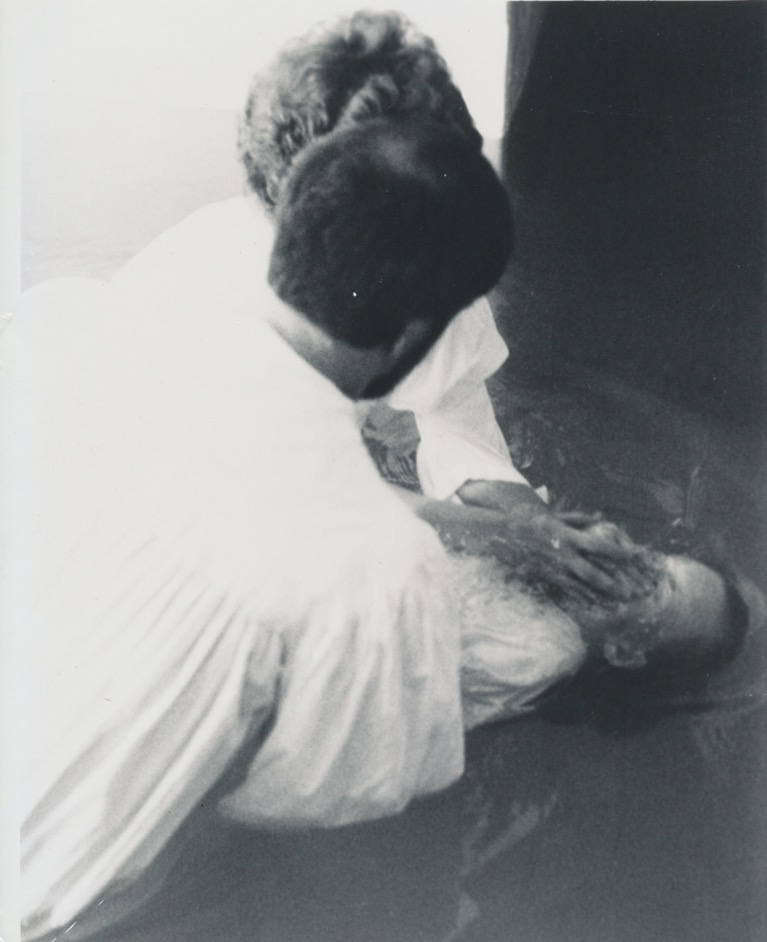 baptismal covenant, a return to baptismal integrity, is the believing community’s greatest need.
baptismal covenant, a return to baptismal integrity, is the believing community’s greatest need.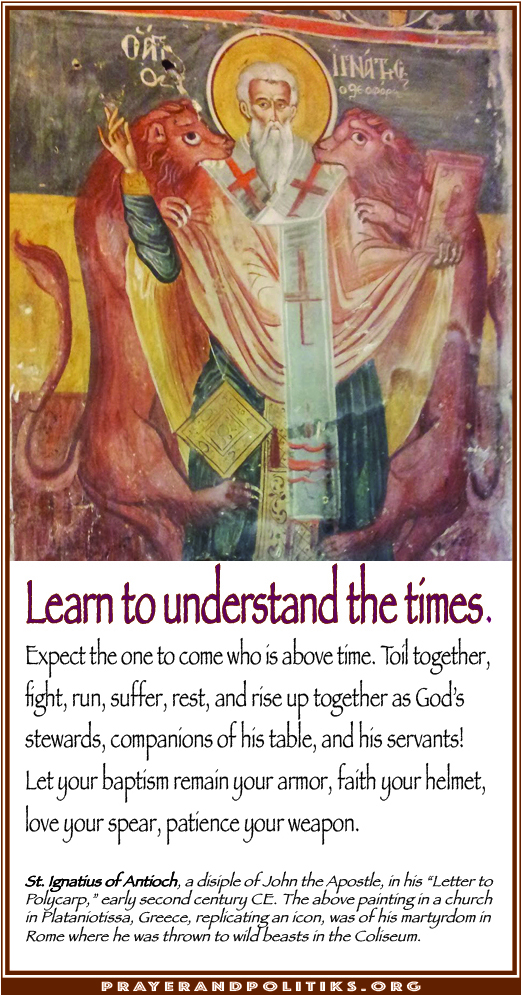 the rite for baptizing, either immersion, which is more suitable as a symbol of participation in the death and resurrection of Christ, or pouring may lawfully be used” (no. 22).” —Msgr. M. Francis Mannion, “
the rite for baptizing, either immersion, which is more suitable as a symbol of participation in the death and resurrection of Christ, or pouring may lawfully be used” (no. 22).” —Msgr. M. Francis Mannion, “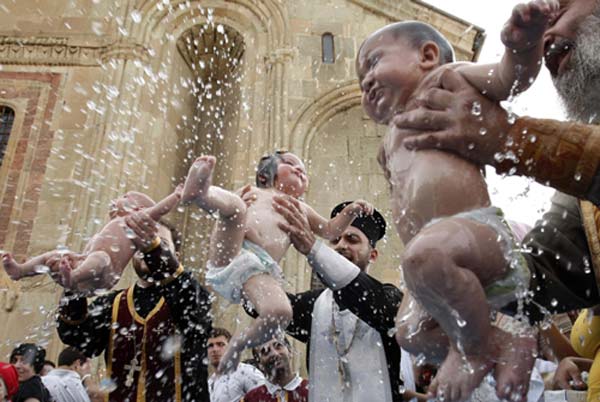 paradox of the faith that binds us each to each: that we believe, against all evidence and sense, in life and love and light, in the victory of those things over death and evil and darkness.” ―Brian Doyle, Credo: Essays on Grace, Altar Boys, Bees, Kneeling, Saints, the Mass, Priests, Strong Women, Epiphanies, a Wake, and the Haun
paradox of the faith that binds us each to each: that we believe, against all evidence and sense, in life and love and light, in the victory of those things over death and evil and darkness.” ―Brian Doyle, Credo: Essays on Grace, Altar Boys, Bees, Kneeling, Saints, the Mass, Priests, Strong Women, Epiphanies, a Wake, and the Haun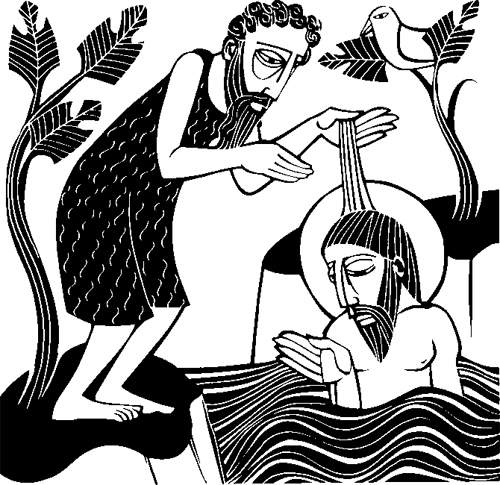 forever / There we will meet, and we will sing / Glory hallelujahs . . . / In that land of sorrowfree.” —Kate Campbell, “
forever / There we will meet, and we will sing / Glory hallelujahs . . . / In that land of sorrowfree.” —Kate Campbell, “ loose from our old certainties, to be thrust under the flood and then pulled forth fresh and newborn. Baptism takes us there.” —William Willimon, Bread and Wine
loose from our old certainties, to be thrust under the flood and then pulled forth fresh and newborn. Baptism takes us there.” —William Willimon, Bread and Wine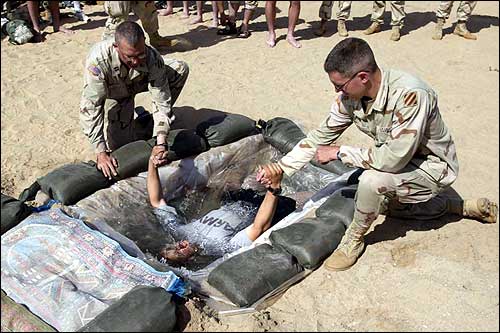 controversial assertion: Membership in the State and membership in the Church are not the same thing. Being a citizen is not the same as being a Christian. They argued that, in the New Testament, the decision to “follow” Jesus very often involved a rupture of social life, even a conflict with ruling authorities. —continue reading Ken Sehested’s “
controversial assertion: Membership in the State and membership in the Church are not the same thing. Being a citizen is not the same as being a Christian. They argued that, in the New Testament, the decision to “follow” Jesus very often involved a rupture of social life, even a conflict with ruling authorities. —continue reading Ken Sehested’s “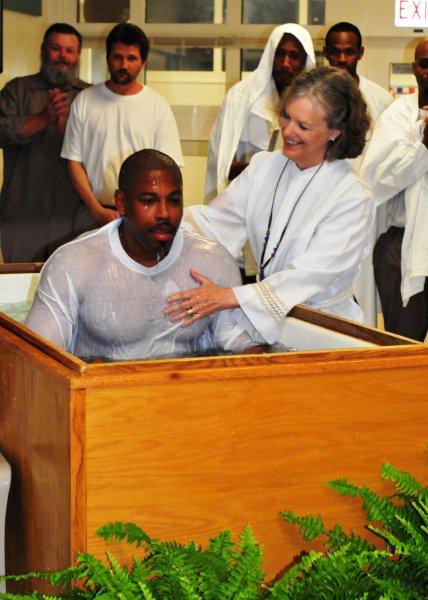 proclaim, or to use a more modern term, ‘sell’ Christianity today!” ―Alexander Schmemann, For the Life of the World: Sacraments and Orthodoxy
proclaim, or to use a more modern term, ‘sell’ Christianity today!” ―Alexander Schmemann, For the Life of the World: Sacraments and Orthodoxy With joy you will draw water from the wells of salvation. / ¡Aguas viva! / When you pass through the waters, I will be with you; and through the rivers, they shall not overwhelm you. / ¡Aguas viva!” —continue reading Ken Sehested’s “
With joy you will draw water from the wells of salvation. / ¡Aguas viva! / When you pass through the waters, I will be with you; and through the rivers, they shall not overwhelm you. / ¡Aguas viva!” —continue reading Ken Sehested’s “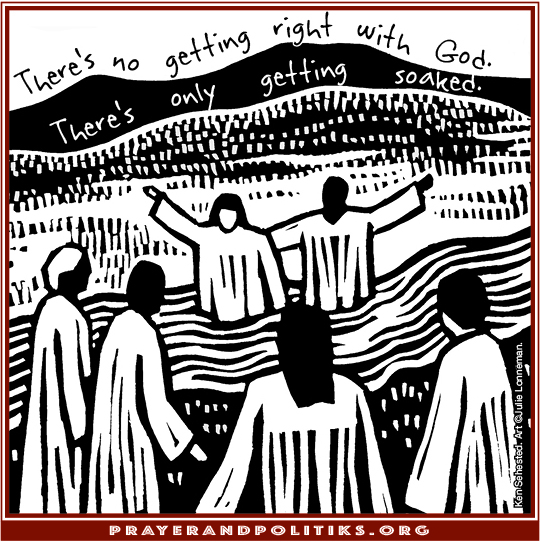 Featured this week on prayer&politiks
Featured this week on prayer&politiks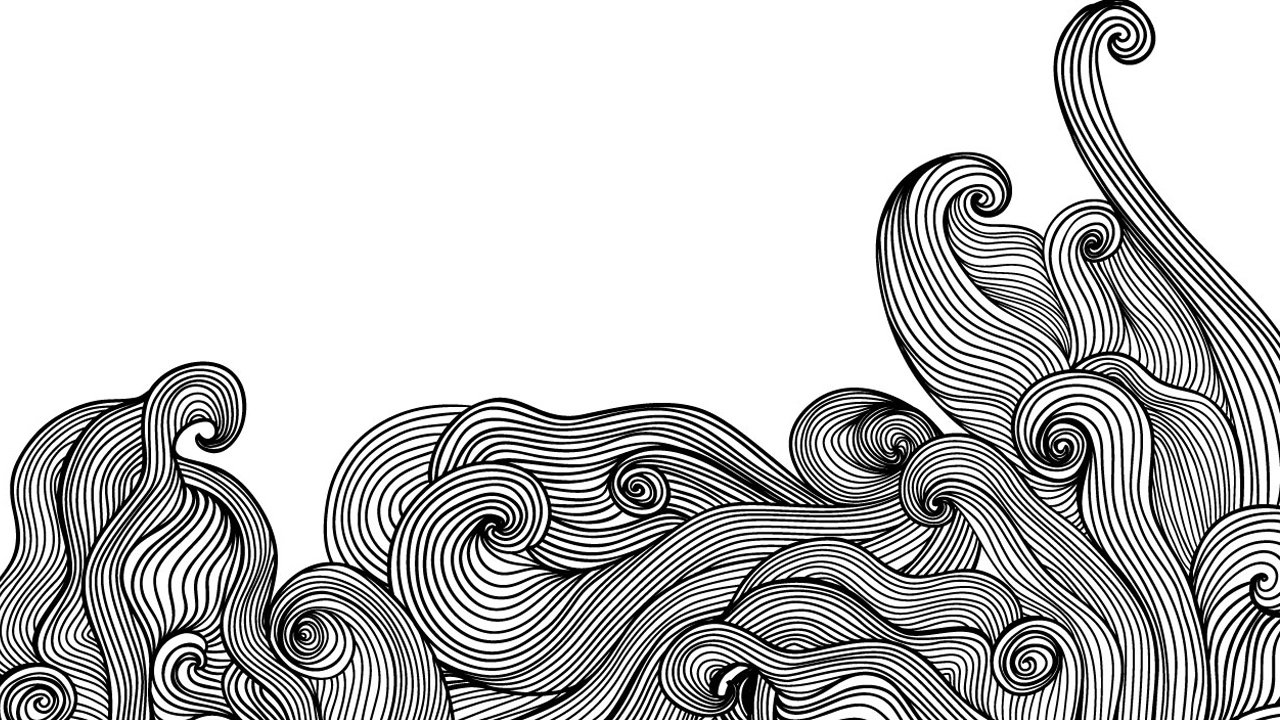 God turns a desert into pools of water, a parched land into springs of water. With joy you will draw water from the wells of salvation. (Psalm107:35; Isaiah 12:3)
God turns a desert into pools of water, a parched land into springs of water. With joy you will draw water from the wells of salvation. (Psalm107:35; Isaiah 12:3)
 —Brazilian theologian Rubem Alves
—Brazilian theologian Rubem Alves ¶ See new and revised lyrics to “
¶ See new and revised lyrics to “ ¶ “UN: Migrant deaths in Mediterranean tops record 5,000 this year.” —
¶ “UN: Migrant deaths in Mediterranean tops record 5,000 this year.” —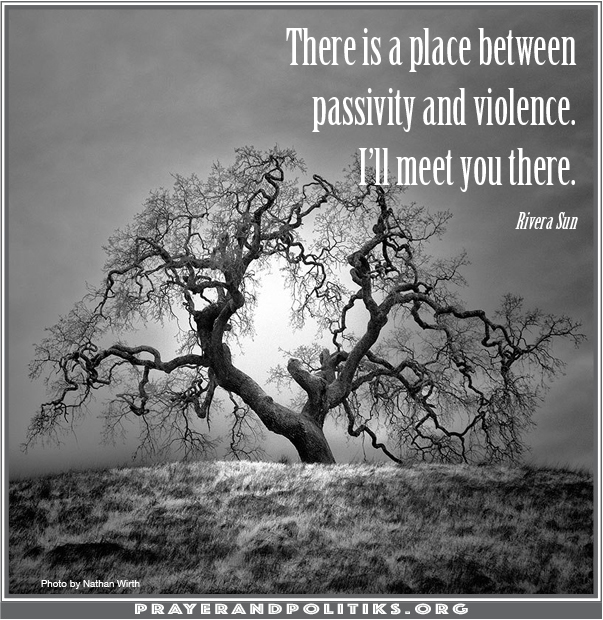 power exercised on God’s behalf, as if God needed his help.” —Giles Fraser’s “
power exercised on God’s behalf, as if God needed his help.” —Giles Fraser’s “ things worn out and of no value; rubbish.’ Who knew a dictionary could speak words of prophecy?” —Rabbi Arthur Waskow, The Shalom Report
things worn out and of no value; rubbish.’ Who knew a dictionary could speak words of prophecy?” —Rabbi Arthur Waskow, The Shalom Report d insurgent resolve is unshackled, from which incendiaries of the Spirit launch raids, even now, against a rancid world to reclaim the resplendent earth for its created purpose and pleasure and joy.” —continue reading Ken Sehested’s “
d insurgent resolve is unshackled, from which incendiaries of the Spirit launch raids, even now, against a rancid world to reclaim the resplendent earth for its created purpose and pleasure and joy.” —continue reading Ken Sehested’s “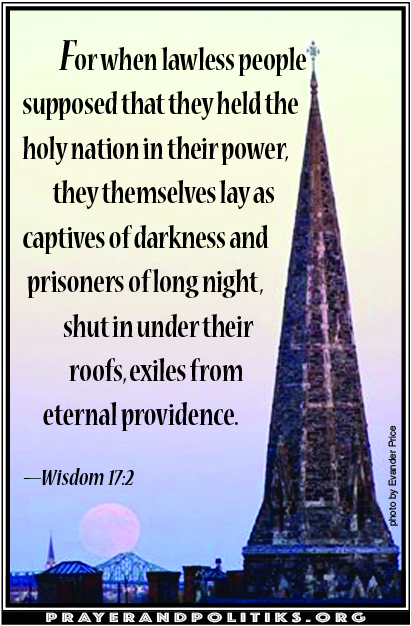
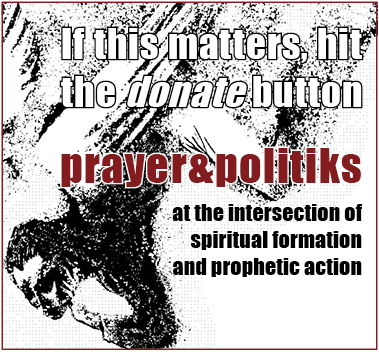 • “
• “
 Right: Color version of Thomas Nast’s most famous drawing, “Merry Old Santa Claus”, from the January 1, 1881 edition of Harper’s Weekly.
Right: Color version of Thomas Nast’s most famous drawing, “Merry Old Santa Claus”, from the January 1, 1881 edition of Harper’s Weekly. Secret History of Christmas in Bethlehem
Secret History of Christmas in Bethlehem in July!’” —David Galloway, Facebook post
in July!’” —David Galloway, Facebook post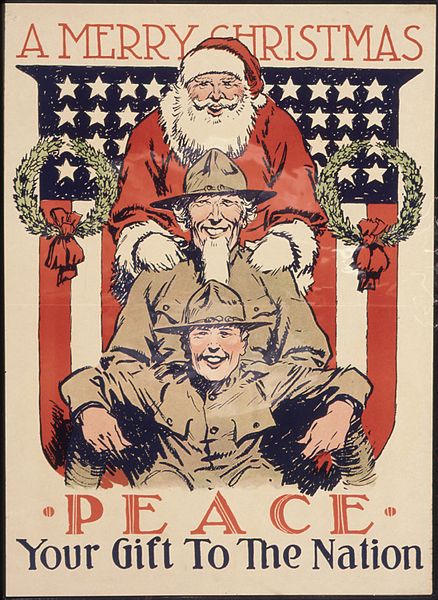 their interpretation of the Bible.” —Liam Stack, “
their interpretation of the Bible.” —Liam Stack, “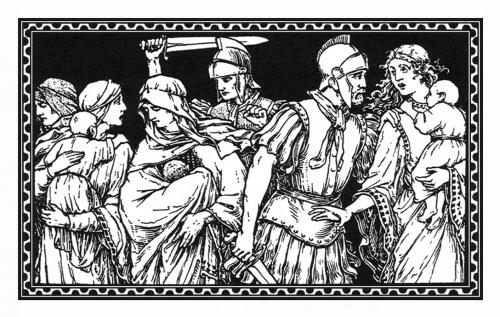 Rights, Vienna, Austria, June 14-25, 1993
Rights, Vienna, Austria, June 14-25, 1993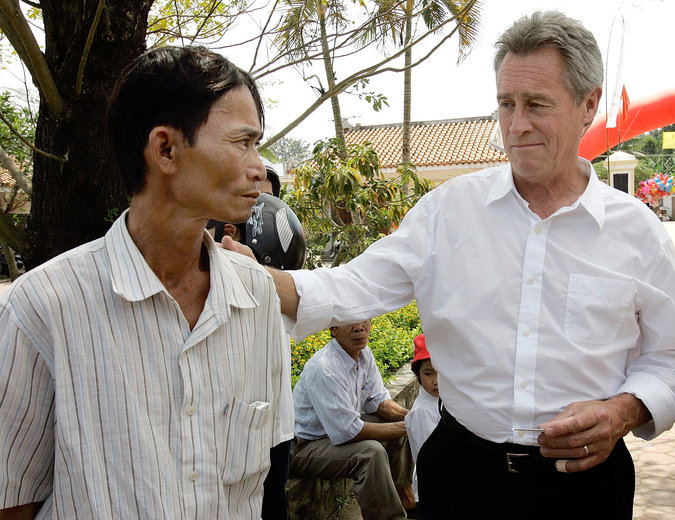 the horrors of war, died on Tuesday at his home in Canton, Ga., from cancer. He was 67.”
the horrors of war, died on Tuesday at his home in Canton, Ga., from cancer. He was 67.”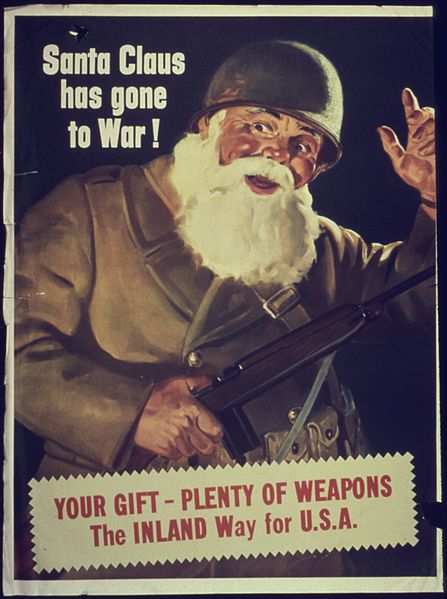 more of this remarkable story by
more of this remarkable story by  made new.” —continue reading Ken Sehested’s poem, “
made new.” —continue reading Ken Sehested’s poem, “ more. Crying? Turned to joy. Pain? Transposed into awe and wonder. History’s agony, consummated in the Beloved’s embrace. Persevere, wearied one, in this assurance. —Revelation 21:3-4, adapted by Ken Sehested
more. Crying? Turned to joy. Pain? Transposed into awe and wonder. History’s agony, consummated in the Beloved’s embrace. Persevere, wearied one, in this assurance. —Revelation 21:3-4, adapted by Ken Sehested ©Ken Sehested @ prayerandpolitiks.org. Language not otherwise indicated above is that of the editor. Don’t let the “copyright” notice keep you from circulating material you find here (and elsewhere in this site). Reprint permission is hereby granted in advance for noncommercial purposes.
©Ken Sehested @ prayerandpolitiks.org. Language not otherwise indicated above is that of the editor. Don’t let the “copyright” notice keep you from circulating material you find here (and elsewhere in this site). Reprint permission is hereby granted in advance for noncommercial purposes.